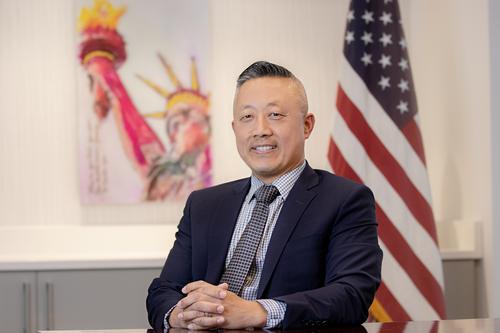Today, technology is drawing our world increasingly closer. Like many nations, the United States is involved in many arrangements and projects with officials from other nations. Many times, foreigners visit the U.S. to conduct official business. In these cases, these individuals must secure a non-immigrant visa to obtain entry into the country. While there are many different types of non-immigrant visas, A visas are intended for use by international government officials and diplomats.
What Is an A Visa?
An A visa is a non-immigrant visa meant for foreign officials and diplomats to enter the U.S. to engage in official duties and activities. There are three  types of A visas, including:
types of A visas, including:
- A-1 – This type is intended to be used by heads of state, ambassadors, diplomats, public ministers, and their immediate family members.
- A-2 – An A-2 visa is meant for accredited officials other than diplomats traveling to the U.S. officially representing their government on business and their immediate family members.
- A-3 – The final type of A visa is appropriate for attendants, servants, and personal employees of an A visa holder and their immediate family members.
An A visa allows the bearer to remain in the country for as long as the government officially recognizes their status as a member of the diplomatic community. There is no formal renewal process or application that must be completed. However, those who are on official assignment for a period of less than 90 days can be issued an A visa annotated TDY for temporary duty.
Unique Benefits of an A Visa
An A visa is considered a diplomatic visa, and as such, entitles the holder to certain privileges not enjoyed by holders of other types of visas. These benefits include:
- No application or visa fees.
- Diplomatic immunity where applicable.
- No domestic or international travel restrictions.
- Fast processing times.
There are many exceptions to the privileges and any behavior in violation of U.S. law or policy could result in the revoking of some or all of these benefits.
Limitations of an A Visa
While an A visa offers many more privileges to non-immigrants, there are some limitations imposed on these visa holders. First, representatives of local governments do not qualify for an A visa, only those representing national interests. Second, the primary holder of an A visa may not study or work in any other capacity other than that stated for visa purposes during their stay in the U.S. Immediate family members may, however, do both. Additionally, these visas are intended only for official purposes. With the exception of heads of government who always require an A1 visa, foreign officials must secure the appropriate type of visa for their travel (tourism or business, for example) if not on official duty.
Obtaining an A Visa
For those who qualify, it can be fairly straightforward to obtain an A visa. Applications can be submitted outside the country to your local embassy or consulate or from inside the country if you are already in the U.S. for another lawful purpose. To complete the process, applicants need:
- Valid passport
- Visa application form DS-160
- Photo
- Diplomatic note validating your reason for travel and legitimacy of representation.
While these tasks may not seem overwhelming, errors in application can prevent you and your family members from entering the U.S. Often, those traveling on diplomatic missions or official state visits cannot afford the stress, time, and confusion of these errors. That’s why the experienced immigration lawyers at Tucker, Nong & Associates offer services to those who want to secure an A visa.
Do You Need Help In Getting Your Green Card Or Visa in Virgina, Maryland or Washington D.C.?
If you're trying to obtain a Green Card or Visa you need to speak with an experienced immigration attorney as soon as possible. Please contact us online or call our Vienna, Virgnia office directly at 703.991.7978 or our Rockville, Maryland office at 301.637.5392 to schedule your case consultation.
|
Related Links: |

